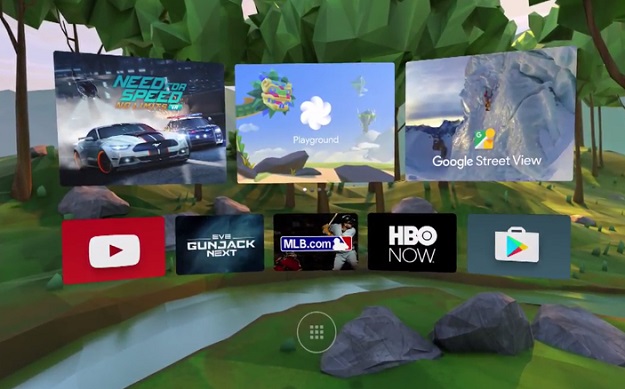Google I/O is well underway and the search giant has already revealed a number of compelling hardware and software announcements. Just a few moments ago, Google announced some exciting new Virtual Reality developments with the introduction of a new VR platform called Daydream.
DON’T MISS: Live coverage: Watch the Google I/O 2016 keynote right here
So while we didn’t get the standalone VR headset that was previously rumored, Daydream still has a lot of interesting surprises in store for us. Designed as a platform built atop of Android N, Google’s ambition with Daydream is to foster the creation of a broad and all-encompassing ecosystem. Consequently, Google relayed that it has developed reference specifications for manufacturers who wish to create Daydream capable smartphones, apps, and headsets.
And speaking of apps, Google said that the type of apps Daydream is intended to support extends beyond gaming and will include apps like HBO Now, Netflix, and MLB’s beloved MLB.com app. And not surprisingly, Google also plans to bring its own homegrown apps like YouTube and Google Photos to the VR party.
While the launch of Daydream-ready phones isn’t right around the corner, the release of a new virtual reality platform signals that the search giant is willing to throw a considerable amount of resources behind the impending VR revolution.
Now if any of this sounds familiar, it’s because Google’s strategy here is effectively similar to what it achieved with Android.
Fortune astutely observes:
When it comes to hardware, Google is late to the VR party. Still, [Clay] Bavor insists that its impact could be the most significant. By creating both the software and the hardware for VR (but allowing partners to make their own versions), Google is copying its own playbook for Android, the world’s top mobile operating system. Samsung and HTC, two major Android phone manufacturers, will develop Daydream-ready phones. Gaming giants Ubisoft and Electronic Arts ea will create Daydream-ready VR games.
Other hardware manufacturers committed to developing Daydream-ready smartphones include Asus, LG, ZTE, Alcatel, Xiaomi and Huawei.
A quick cut of what Google’s VR utopia looks like can be seen below.
Developing…
For more news and coverage from Google’s developers event, check our Google I/O 2016 hub.




